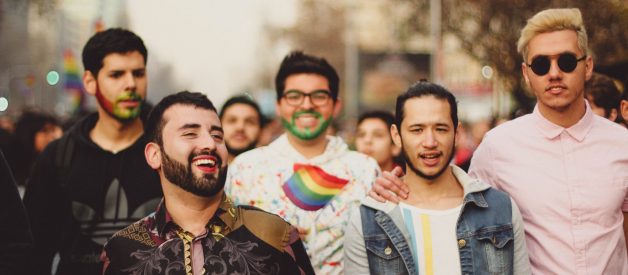The alienation of potential allies
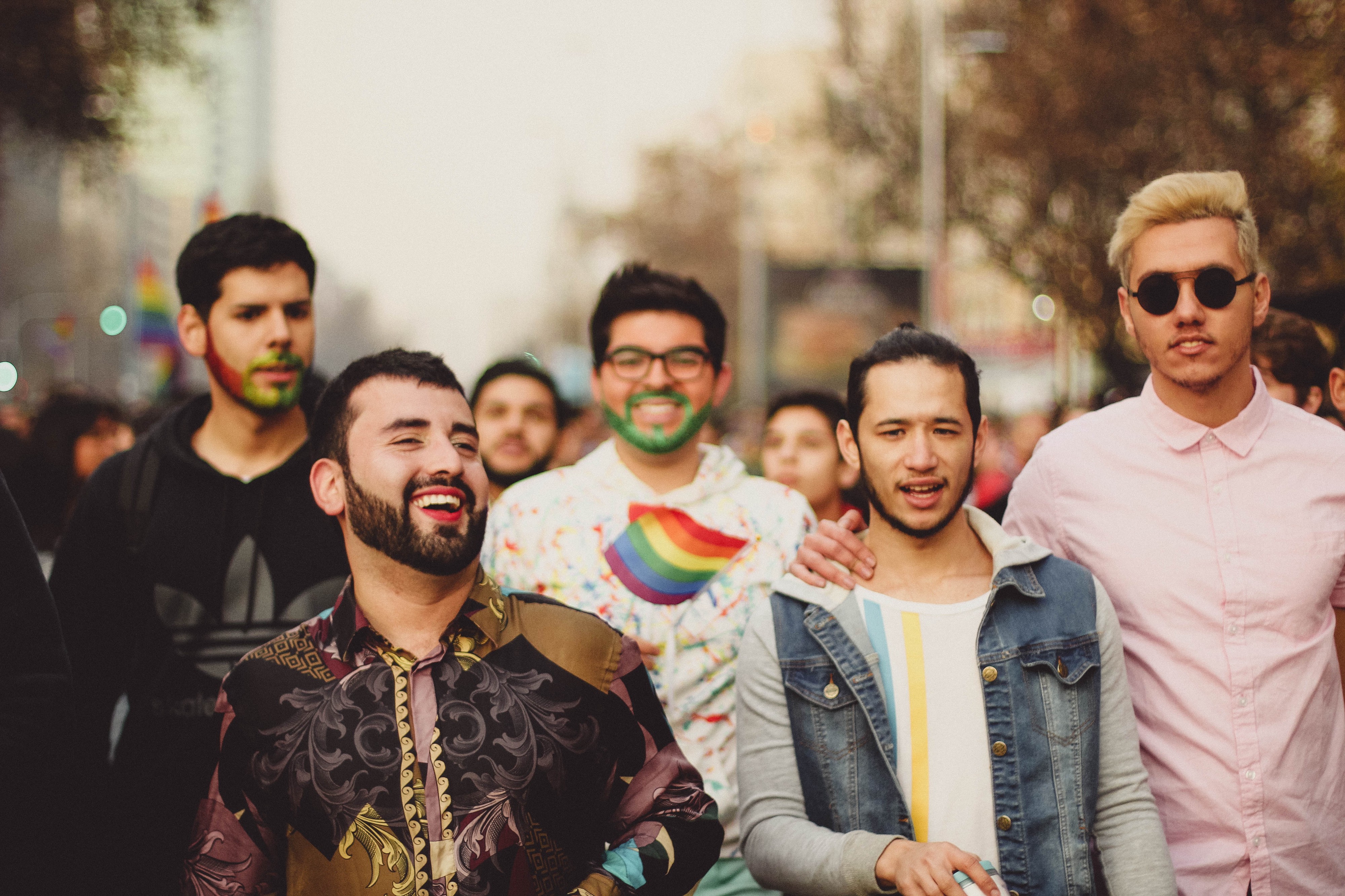 Gender-expansive gay men in Santiago, Chile. Photo: Diego Duarte Cereceda. Source: Unsplash.
Gender-expansive gay men in Santiago, Chile. Photo: Diego Duarte Cereceda. Source: Unsplash.
It wasn?t very long after I started participating in LGBTQ social media spaces that I experienced what some have termed the ?weaponization of cisgender?: an effort to dismiss my words and ideas because I was presumed to be ?cisgender,? meaning: my gender identity corresponded with the sex I was labeled at birth.
I?ll never know for certain, but I assume the conclusion that I was ?cisgender? was based solely on my profile photo since those deploying the term likely knew little else about me. (I openly identify as gay but have never described myself as ?cisgender.?)
Cisgender (like transgender) identities, behaviors, and life experiences can color a person?s worldview, thus characterizing someone as ?cisgender? is not necessarily inaccurate or out of bounds. I use the word all the time ? in the classroom, in my writing, etc. But the ?weaponization of cisgender? is an extreme example of something I?ve argued (here): that the term ?cisgender? is not a neutral adjective or descriptor.
When ?cisgender? is weaponized, it?s used to shut down discussion, invalidate ideas, and silence voices.
Rather, it works to de-naturalize and de-center something that masquerades as natural, neutral, and ?normal.? It names a thing that draws its power from remaining unseen, unnoticed, and unnamed. As such, employing the term ?cisgender? is always an exercise in power. But, when the word is ?weaponized,? it?s being used to shut down discussion, invalidate ideas, and silence voices.
There?s a lot to analyze about these kinds of interactions but, here, I want to set aside questions about the ethics of imposing a gender identity on others or dismissing a person?s words, ideas, or arguments solely on the basis of immutable traits or characteristics. It is also not my intent to engage the thorny question of who should be ?centered? in LGBTQ social spaces (or whether margin/center metaphors are helpful in multiply-marginalized communities). Nor am I concerned here with (what I consider to be) the silly question of whether the word cisgender is always pejorative or a ?slur.?
Rather, I want to consider more fundamental questions: are gay men cisgender? And, if they?re not, is attempting to silence or dismiss them through weaponized deployments of ?cisgender? a smart political strategy? Does it help advance the cause of gender justice for everyone in society?
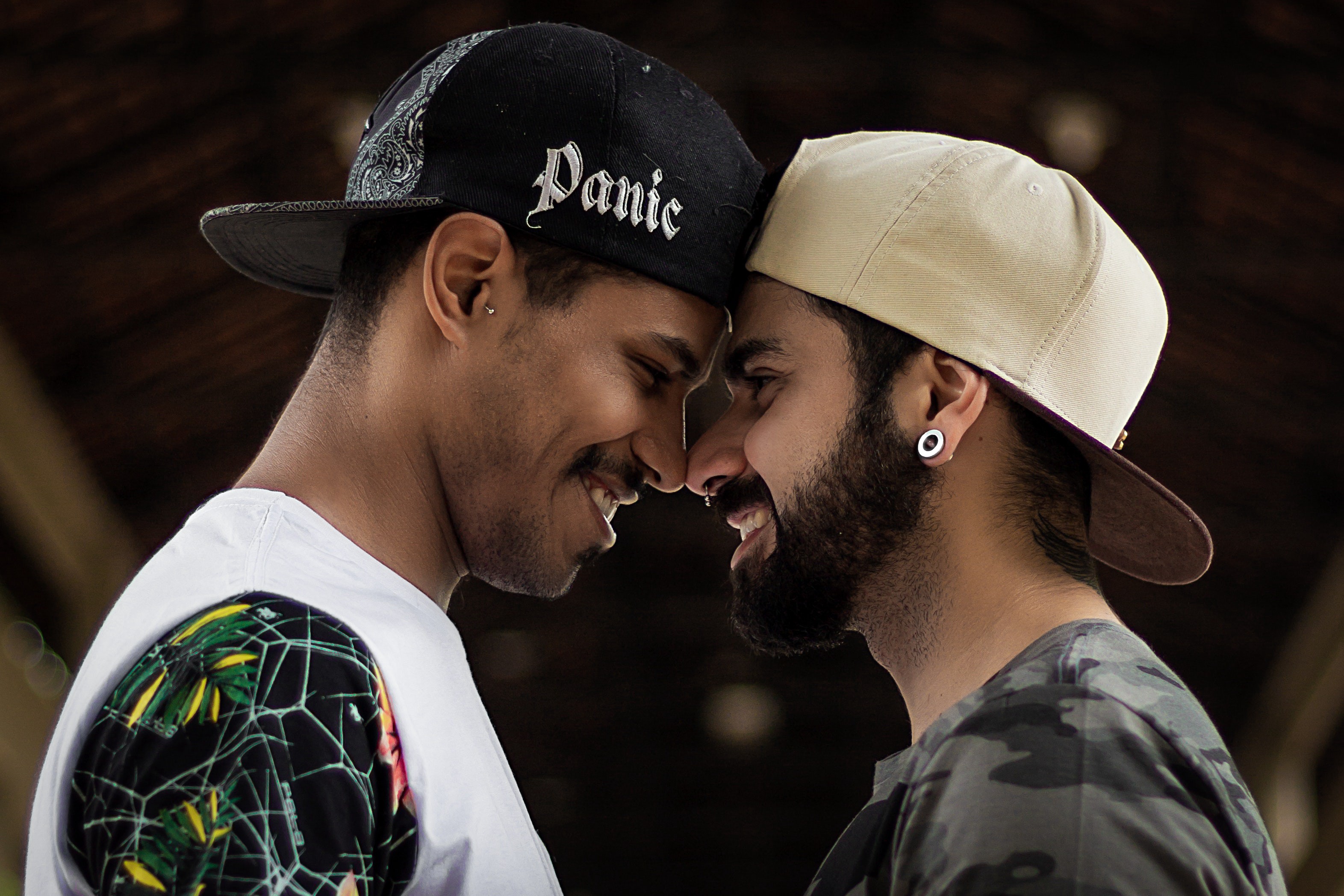 Photo by Marcelo Chagas from Pexels
Photo by Marcelo Chagas from Pexels
Coming to Terms
Answering these questions requires agreement on the meaning of the term ?cisgender.? Related to the more common term ?transgender,? ?cisgender? typically refers to a person whose gender identity and gender expression is consistent with the sex they were labeled at birth.
For example, a person labeled ?female? at birth who comes to identify as a girl, then a woman, and behaves in ways expected for girls and women, can be considered cisgender. This, in contrast to the term ?transgender,? which describes those whose gender identity and expression differs from that expected for the sex they were labeled at birth.
Though some transgender men are attracted to other men and identify as gay, the question ?Are transgender gay men cisgender?? is pretty well answered by the word ?transgender? in the question. (?No, they aren?t cisgender. Because they?re transgender. Duh.?) Thus, transgender gay men are not my focus here, though they doubtless have a unique vantage point on the way gender operates in gay men?s spaces.
For our purposes, the relevant aspects of the consensus definition of ?cisgender? are gender identity, gender expression, and biological sex. So the question, ?Are gay men cisgender?? is another way of asking, ?Are gay men?s gender identity and gender expression what are expected for someone labeled ?male? at birth?? All of which entails a third, unexpected, question: ?Are gay men male??
The answers are sometimes, sometimes, and maybe.
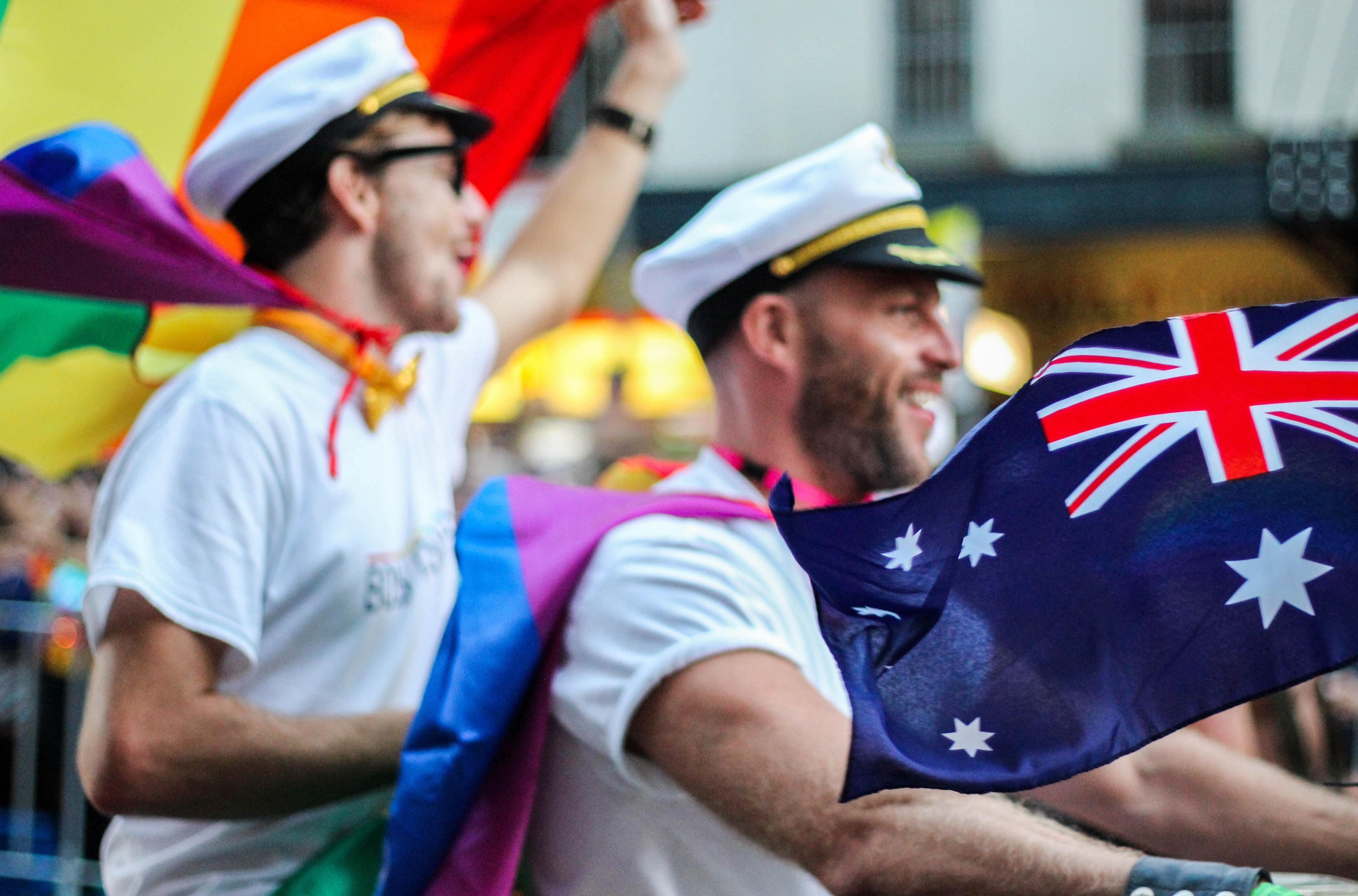 Photo by Juliette F on Unsplash
Photo by Juliette F on Unsplash
Gender Identity: Do gay men identify as men?
Let?s tackle the easy one first: gender identity. To my knowledge, there has never been a scientific study of a representative global sample of gay men asking if they identify as ?men.?
Purely from personal experience, I can say many gay men identify as men and unproblematically so. But many others do not. And some do but only situationally, to ease social interactions or represent themselves to society in the (gender binary) terms it understands, not because they cling tightly to that identity.
To understand why, we need to pry apart the terms ?male? and ?man.? Although they are often used interchangeably, ?male? and ?man? mean different things. Male is a word used to describe the biological sex of certain living organisms, where ?man? describes a social and cultural identity or status that is often (but not always) connected to biological sex (here, maleness).
Although ?male? and ?man? often travel together, one needn?t be ?male? to be ?a man? and many males (including all animals) never embrace the gender identity of ?man.? Thus, while gay men may be males, their biological sex does not guarantee they will identify as, or hold the social status of, men.
Unlike (apparently) a great many ?straight? men, as suggested by the burgeoning literature in ?men?s studies,? gay men don?t seem to dwell on the question of their gender identity. (I have never met a gay man preoccupied with whether he was ?a real man.?) Others stridently assert they are men to counter stereotypes of effeminate homosexuality or old beliefs that male homosexuals are ?women trapped in a man?s body.?
Others may self-identify as ?men? when required, to ease social interactions or for official identification, but they may not embrace the term too tightly. And still others are more ambivalent about the implications of self-describing as a ?man? or actively reject that term when describing themselves.
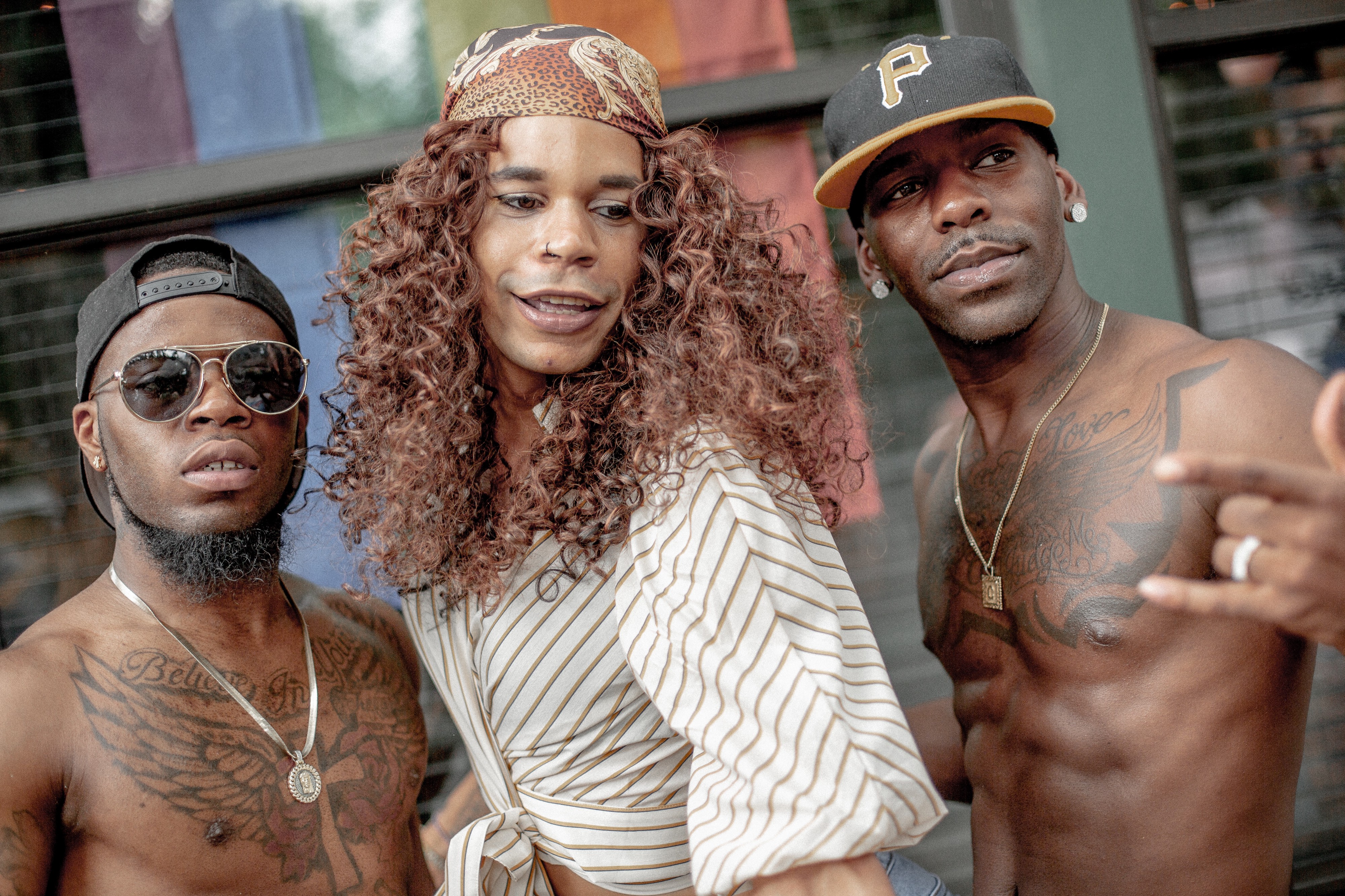 Photo by Brian Kyed on Unsplash
Photo by Brian Kyed on Unsplash
Gender Expression: Do gay men act like men?
A gender expression that?s consistent with sex assignment at birth is the second common aspect of most definitions of ?cisgender.? So, do gay men ?act? like men (whatever that means)?
As with gender identity, and despite stereotypes, gay men exhibit a wide range of gender expressions. And these can change according to context, unique personal traits/characteristics, and/or over the course of their lives.
Despite stereotypes of gay male effeminacy, in their voices, attire, and demeanor, many gay men ?read? as conventionally masculine men. Some also stridently reject any whiff of femininity, vigorously asserting their manliness through aggressive and exaggerated performances of masculinity.
Others embody stereotypes of gay male effeminacy, while still others vary in their gender presentation depending on circumstance. This variety in gay men?s gender presentation is evident even in childhood. Though many gay men were gender non-conforming boys, not all were.
As adults, many gay men embrace gender as an arena of play and creative expression (i.e. drag, Halloween costumes, etc.), while for others it is closely linked to sexual style or membership in sub-cultural groups (i.e. bears, BDSM/kink/leather groups, etc.)
Some of these practically require aggressively masculine appearances and personas, which themselves may be parodied or lampooned by other members of the same group. Thus, blanket characterizations of gay men?s gender presentations are usually over-simplified and inaccurate.
I also think it?s important to acknowledge that the social prerogatives of adhering to traditional expressions of masculinity are often available to gay men regardless of their sexual orientation. Being gay does not inoculate a gay man against sexist or misogynist bejavior, or actively or unconsciously discriminating against women.
The authority and privilege often granted men is also not necessarily foreign to gay men. These can be conferred on gay men by virtue of their being perceived as male and presenting as conventionally masculine, regardless of whether they are wanted or invited. Those advantages can be multiplied or diminished depending on an individual gay man?s race, ethnicity, social class, and physical ability.
Whether or not invited, gay men may still benefit from unearned male privilege even if they don?t express gender in conventionally masculine ways. When gay men ?act like men? (i.e. express conventionally masculine gender) they can benefit from male privilege even if they are also disadvantaged due to their homosexuality or other traits or characteristics.
Gay men may still benefit from male privilege even if they aren?t conventionally masculine in gender expression.
But beyond any stereotypes of gay male effeminacy or the varieties of gay male gender expression, gay men are gender non-conforming by definition. Part of many gay men?s ambivalence towards, or even complete dis-identification with, the gender identity of ?man? is the way this term is closely intertwined with heterosexual desire and sexual behavior.
Within current constructions of heterosexuality masculinity, men are expected to express sexual desire for, and engage in sexual activity solely with, women. Accordingly, same-sex sexual desire or sexual behavior is widely viewed as disqualifying for the gender status of ?man,? regardless of one?s gender identity or gender expression.
This notion ? that homosexuals are not men by definition ? is relentlessly communicated to boys and men by peers, parents, and the popular culture. The pejoratives ?fag? and ?homo? are used to police and regulate the gender expression of boys from the moment they interact with parents, siblings, and peers.
Which results in a large of number of heterosexual men performatively distancing themselves from any appearances or behaviors ? any gender expressions ? they associate with homosexuality, including same-sex desire or sexual behavior, lest they themselves be unmanned. And large numbers of homosexual men vigorously performing a version of masculinity to counter stereotypes of effeminate homosexuality ? as in some parts of the gay bear, Leather/Levis, and BDSM communities.
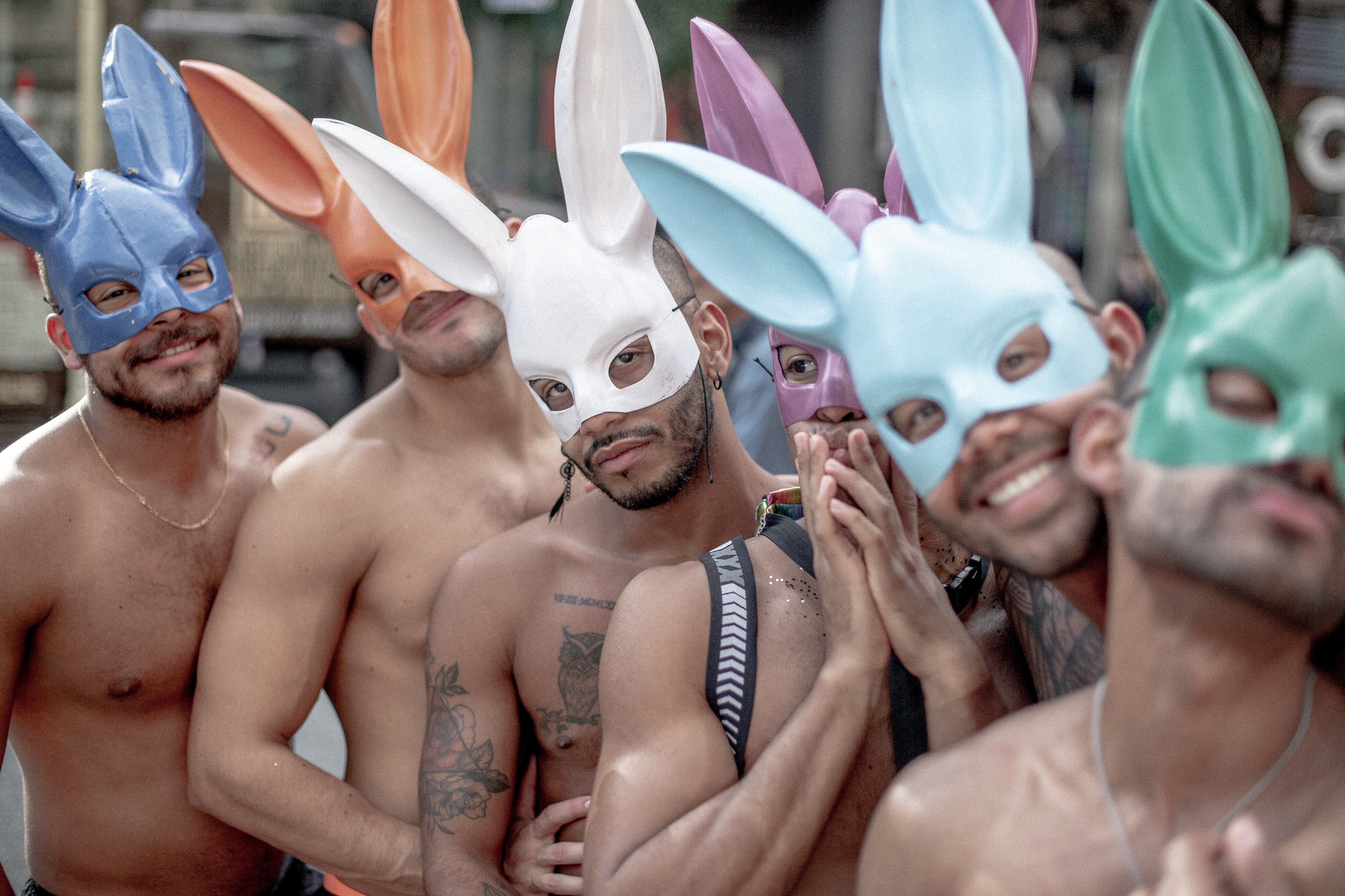 Photo by Brian Kyed on Unsplash
Photo by Brian Kyed on Unsplash
Biological Sex: Are gay men male?
OK, I know this seems like a rhetorical question but hear me out. Although one might assume gay men possess primary and secondary sex characteristics ? genes, genitals, etc. ? that would allow them to be categorized as males, scientific study on the biological sex of a representative global sample of self-identified gay men has never been done.
Which is peculiar? since their smaller percentage of the population would require so many fewer research subjects than a similar survey of heterosexual men. Yet, even so, we can safely say that biological sex is more than genes and genitals.
Brown University professor emerita of Biology Anne Fausto-Sterling has argued there are several components of biological sex: genital shape, gonads (like testes and ovaries), brain structure and function, hormone profile, and genetics. It is assumed that for most people there is some kind of loose concordance between all these aspect of biological sex.
But, in gay men, that may not be the case.
For many years now, scientists have been researching biological differences between homosexual and heterosexual men and there?s a large body of (inconclusive) evidence that gay men?s primary and secondary sex characteristics may not be biologically ?male typical.? There is increasing evidence that gay male genetics, brain structures and functions, and hormone profiles may differ from heterosexual males?.
Some of these likely account for oft-observed differences in the shape and appearance of gay men?s bodies: facial features, hair whorl patterns, fingerprint patterns, handedness, etc. Important to note: these physical differences are not found in all gay men studied, so it would not be accurate to assert that gay men as a group are fundamentally different or ?like women? biologically.
Though genital differences in gay men have not been studied, we do know that 1%?4% of the human population could be described as ?intersex.? That is, they are born with sex traits such as chromosomes, hormone profiles, genitalia, or reproductive organs that do not allow them to easily categorized as male or female. Some intersex people will be same-sex attracted and identify as gay, regardless of their biological uniqueness. In fact, some evidence suggests that intersex people are same-sex attracted at higher rates than the rest of the population.
All of which is to say: some people we?d call ?gay men? may have intersex bodies. And given the variety of conditions falling under the umbrella term ?intersex,? some may never know!
For all these reasons, we cannot assume that gay men are necessarily male, as that term is understood by those who study biological sex.
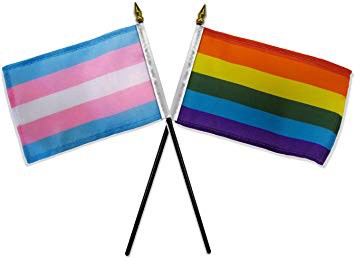 Transgender and Rainbow Pride flags
Transgender and Rainbow Pride flags
Allies or enemies?
If some or all gay men do not identify as men, do not express a conventionally masculine gender, and are not biologically male, then it?s not possible to make the blanket statement that gay men are cisgender without beggaring the term.
So, no, gay men are not cisgender.
And if we consider same-sex attraction, desire, or sexual behavior to make a male ineligible for the gendered social status of ?man,? then no gay men are cisgender.
But that?s not the same as claiming gay men are transgender (if for no other reason than gender self-identification should be an individual prerogative, not imposed by others). I am also not suggesting there is no discrimination against transgender people by gay men or in gay men?s social or digital spaces. There is plenty of evidence to the contrary.
What I am suggesting, however, is that many gay men could legitimately be said to have lived gender variant or gender expansive lives. And their complicated life experiences with gender are not easily captured within the consensus definition of the term ?cisgender.? That experience could offer a point of contact and grounds for solidarity in support of transgender legal rights and social acceptance.
But attempting to silence or alienate gay men through weaponized deployment of the term ?cisgender? seems contrary to the larger project of creating a society more accepting of a wider range of gender identities and expressions that would allow everyone to live their authentic gendered selves.
If you like this story, please consider leaving a comment below or forwarding it on Twitter or Facebook. Thanks!
Note: after initial publication, I made two small changes to this essay. First, I altered wording in the subtitle that made it seem as though I was arguing gay men are transgender (I?m not). Second, I clarified that the focus of my analysis is those gay men who are not transgender and why. ? MM (1/21/20)
Second note: a number of the comments on this piece have implied that I intended it as an entry into a debate (happening elsewhere) about whether the term ?cisgender? is pejorative or a ?slur.? It was not intended as such. The writing was inspired by a question about the phrase ?weaponization of cisgender? posed by a Facebook friend about two years ago, and a number of subsequent conversations with other gay men about whether the word ?cisgender? accurately describes our experiences with gender. I?ve been thinking about these questions for quite some time. A very rough version of this piece sat in my draft folder for over a year. When I had the time, I edited and published it. I added a sentence to the intro to make clear that I am not taking a position on the question ?Is cisgender a slur?? Please don?t read intent or meaning into the writing that?s not there.? MM (1/23/20)
Michael J. Murphy, PhD, is Associate Professor of Gender & Sexuality Studies at the University of Illinois Springfield. He is the author of many book chapters, and encyclopedia and journal articles. Most recently, he edited Living Out Loud: An Introduction to LGBTQ History, Society, and Culture (New York: Routledge, 2019). He tweets @emjaymurphee.
